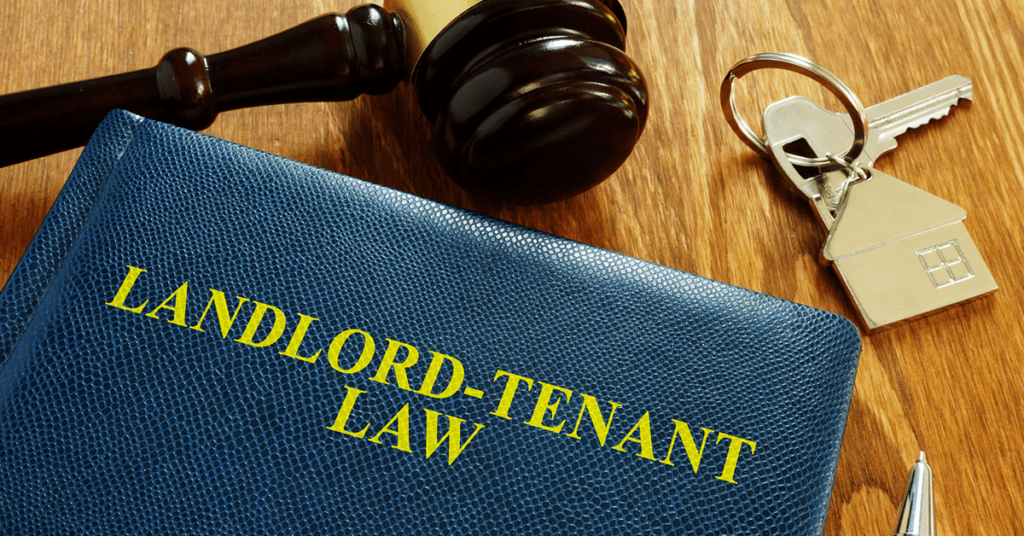
Often forgotten when thinking about the effect of COVID-19 on small business owners, private landlords are really feeling the economic crunch on their properties.
Take Maribeth Shields for example.
Bloomberg featured her in a recent article as someone who is struggling to pay her mortgages because rental properties are her small business.
Shields owns 27 apartments in and around the city of West Haven, Conn. A majority of these apartments are low-income and because of the coronavirus outbreak, more than half of her tenants aren’t paying their rent.
Yes, the tenants are being protected – Connecticut put a moratorium on evictions until July because of the pandemic – but no such protection was put in place for private landlords like Shields, who told Bloomberg she is behind on $1.2 million in mortgages.
“No one is advocating for mass evictions. There are no winners here and everyone is hurting. But landlords have no (legal) remedies”
She isn’t alone. Individual landlords across the country are facing the same dilemma, and with no resolution insight, once these bans on evictions are lifted, chaos is bound to ensue.
Landlords will want their money to try and come out from under their crushing debt and avoid foreclosure. Renters will appeal their evictions, buying themselves at least another month to either come up with the cash or find a new place to live.
And neither situation is good for housing in America.
Yes, the federal CARES act that passed in March did allot for mortgage protection for homeowners with government-backed mortgages, allowing for them to defer payments for up to year. But that only encompasses about half of the mortgages nationwide on rental properties.
The other half have to pay up, or risk losing their properties altogether.
The federal government did not offer relief for renters though, leaving that up to the states in the form of these eviction bans. The notion was that although unemployment was climbing at an alarming rate, stimulus checks from the government and additional dollars being handed out in unemployment would make up for the lost wages and allow renters to pay their bills.
Except, that hasn’t happened.
Instead, renters are showing their landlords empty pockets, who in turn are begging their lenders for more time to pay their mortgages and the end result is a major crimp on property tax revenue.
And there’s no bail out on property taxes. Instead, there will be mounting penalties and late fees, and likely an increase in liens, that will wreak havoc with credit scores and make landlords – who operate on slim profit margins to begin with –end up in just as bad a situation, if not worse, then their renters who currently aren’t paying the rent.
It’s a vicious cycle. And it’s not getting any better.
Because of the pandemic, there’s a lot of activism on the tenant side as well. Rent strikes are being organized. Efforts like the “Right to Cure” ordinance in San Antonio – which would have granted an additional 30-day grace period for renters once the moratoriums are lifted before they had to pay rent – was defeated by a narrow margin in City Council (6-5) because the council recognized there are concerns for property owners that were not addressed in this bill.
Read More: What will happen to property taxes in your area and nationally when the country returns to business as usual following the coronavirus pandemic?
Most of the affordable housing in America is owned by small companies or individual landlords. If they can’t afford their mortgages and are forced to sell the properties they own or even abandon them in some instances, those properties will likely be gobbled up by Wall Street firms with a lot more capital, who would likely turn them from affordable to unaffordable for most renters.
“No one is advocating for mass evictions,” Matthew Paletz, CEO of Paletz Law, a Troy, Mich.-based firm that represents landlords and property owners, told the Detroit Free Press. “There are no winners here and everyone is hurting. But landlords have no (legal) remedies” during the moratorium.
According to the National Multifamily Housing Council, 88 percent of apartment tenants made a full or partial rent payment in May by May 13. That was down two percent from the same time a year ago, but it was also down four percent from April. While those numbers are better than expected, it’s still a number going in the wrong direction with uncertainty remaining for the rest of 2020.
Compounding that data is the fact that it doesn’t include information on apartments rented by smaller or individual landlords, and it doesn’t include units that are considered affordable housing. This is the area where financial strain is more likely.
“No property owner can withstand that revenue loss,” Tim Thorland, executive director of Southwest Housing Solutions told the Detroit Free Press. “There’s a misconception of real estate industry that it’s flush with cash and prepared to weather any storm. The fact of the matter is it’s a thin margin industry and you can be successful if things go as expected.”